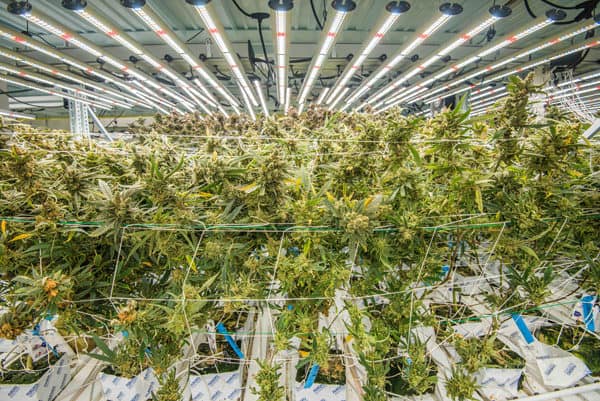The Unbearable Whiteness of Weed
Robert Hampton, American Renaissance, September 18, 2019
California Sen. Kamala Harris wants the government to subsidize minority-owned marijuana businesses. Her criminal justice reform plan says the federal government should provide money for loans to “small businesses in the marijuana industry that are owned and controlled by socially and economically disadvantaged individuals.” A new marijuana sales tax would cover the loans.
Sen. Harris’ plan would legalize marijuana nationally and expunge marijuana convictions. She trots out easily refuted statistics to explain why the War on Drugs was racist: “[D]espite roughly equal usage rates, Black people are about four times more likely than White people to be arrested for marijuana. Black Americans also make up nearly 30 percent of all drug-related arrests, despite accounting for only 12.5 percent of substance users.” She wants “marijuana licensing and employment for the individuals most adversely impacted by the War on Drugs.” Senator Harris would also make sure that “technology used by federal law enforcement — such as facial recognition and other surveillance — does not further racial disparities or other biases.”
A 2017 report from Marijuana Business Daily found that whites own 81 percent of marijuana businesses. Hispanics own less than 6 percent, and blacks just 4.3 percent. Any “disparity” must be caused by racism, and journalists, activists, and Democratic politicians have repeatedly attacked the industry’s “whiteness.” Mic.com, Vice, Salon, Pacific Standard, Chicago Tribune, and USA Today have all complained that the industry is “too white.”

(Credit Image: © Vito Di Stefano/ZUMA Wire)
Marijuana activists believe legal weed can “revolutionize the conception of blackness.” “It has the potential to give someone their life back, to give them a step back from a place of punishment of weed and into a place of celebration and success,” says Cannabis Cultural Foundation co-founder Jacob Plowden. “It’s a massive shift in societal thought in what could make one successful.”
But it takes money. Vice says the costs of a marijuana business bar “black and brown people,” and blames the “racial wealth gap.” “Getting funded is a bitch,” Wanda James, Colorado’s first black dispensary owner, told Vice. “[Y]ou’d have to spend $200,000 to $250,000 to get a lease, renovate, make a space look nice, and get your grows together.”
Jamil Taylor, a black marijuana executive, explained the problem to the Chicago Tribune: “You need so much capital, and you can’t go out and get a bank loan. If you don’t come from a wealthy background, your access to capital is very limited. How can you become an owner in the space?”
One common complaint is that laws prohibiting those with criminal records from entering the industry discriminate against non-whites. Los Angeles has a “social equity program” to give a leg up to non-white marijuana entrepreneurs, but after two years, whites still dominate. Blacks complain they don’t get enough help.
Many localities insist on preferences. Oakland requires that at least half of all cannabis permits go to those who were convicted of marijuana crimes and live in high-crime zones. The city gives low-interest loans and other help to former convicts.
Massachusetts’ social equity program favors people from poor areas who had a “disproportionate impact” from drug laws — a standard meant to give non-whites a leg-up. NPR reports this was not enough. Non-whites are “scared of the government, man,” cannabis activist Sieh Samura said. “This is still a new thing. And there’s taxes, there’s the government, there’s all kinds of things, you know.” Yes, starting a business requires “all kinds of things.” Mr. Samura complains the industry is “not welcoming for everybody.”
Somerville, Massachusetts, is explicit about race. It requires that 50 percent of all marijuana licenses go to black and Hispanic applicants. Mayor Joe Curtatone says this will give all residents “a real authentic opportunity to participate in that economy in the future.” This clearly discriminates against most residents. The wealthy Boston suburb is over 70 percent white and nearly 10 percent Asian. It’s just 10 percent Hispanic and 6 percent black, but they will be half of the town’s marijuana entrepreneurs.
Federal lawmakers also want race preferences. California Rep. Barbara Lee introduced a resolution last year requesting that states and localities expunge non-violent marijuana offenses, drop license application fees, let convicts get licenses, and direct marijuana tax revenue to non-whites.
Sen. Harris’s plan to subsidize non-white marijuana dealers is just the beginning. Even if you don’t smoke, you’ll still pay a price for weed equality.















